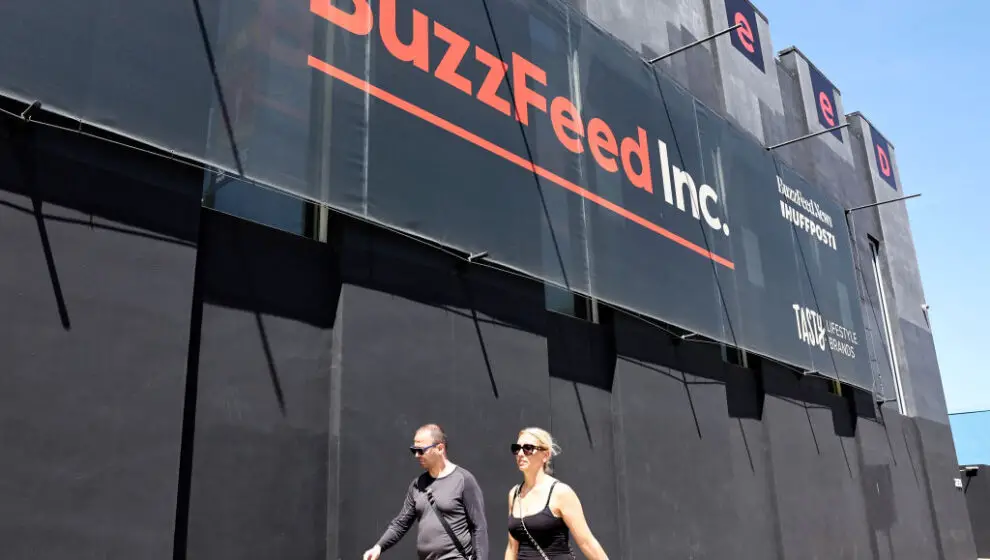Ten years ago, Disney offered to buy BuzzFeed—but the founder turned down CEO Bob Iger and just this week closed the news operations.
Key Details
- On April 20, BuzzFeed announced that it would be laying off 15% of its workforce and shuttering its news division, which had been active since 2011.
- The company was once valued at $700 million, with a growing readership and a Pulitzer Prize to its name, but has declined to $100 million in valuation.
- BuzzFeed reported a net loss of around $201 million in 2022.
- The parent company will move a handful of its journalists and news content to HuffPost.
- The decline marks a notable collapse for a website that once was offered a $450 million buyout from Bob Iger and Disney—with the potential to get an additional $200 million.
Why It’s Important
Journalism has been one of the notable sectors hit by ongoing tech layoffs. Business Insider similarly announced that 10% of its staff was being let go on Thursday. The decline of BuzzFeed is particularly notable for many journalists that considered the online publication to be one of the most desirous and ambitious news publications of the 2010s—up to its going public in 2021.
BuzzFeed founder Jonah Peretti reportedly regrets not taking Bob Iger’s buyout offer in 2013, with company executives calling it one of the “dumbest in the history of digital media,” former editor-in-chief Ben Smith writes in a upcoming book Traffic, which was excerpted in Vanity Fair. At the time, a buyout seemed ideal for all parties involved. Disney saw BuzzFeed as a growing company with the possibility that it could grow out of the relationship.
Despite his executives begging him to take the deal, Peretti eventually turned down the offer, with Iger allegedly saying, “That company will never be worth what it would have been worth with us.”
Notable Quotes
“I made the decision to overinvest in BuzzFeed because I love their work and mission so much. This made me slow to accept that the big platforms would not provide the distribution or financial support required to support premium, free journalism purpose-built for social media,” says Peretti.
“BuzzFeed funneled venture capital into something genuinely very useful and necessary: High-quality reporting freely available for anyone to read. It was the envy of every reporter who entered journalism in the chaotic 2010s and did not work there. What a loss,” says HuffPost senior reporter Alexander Kaufman.

